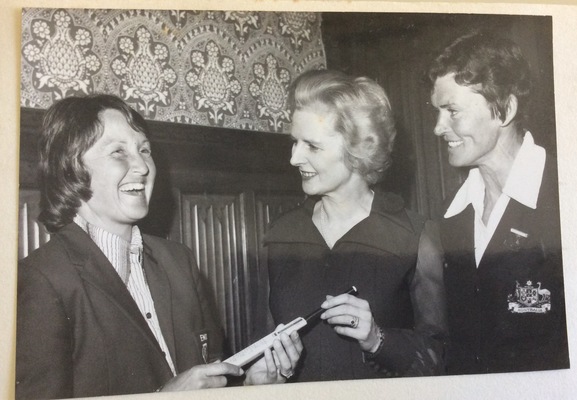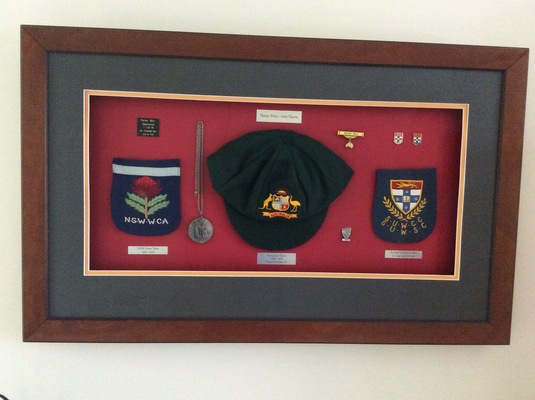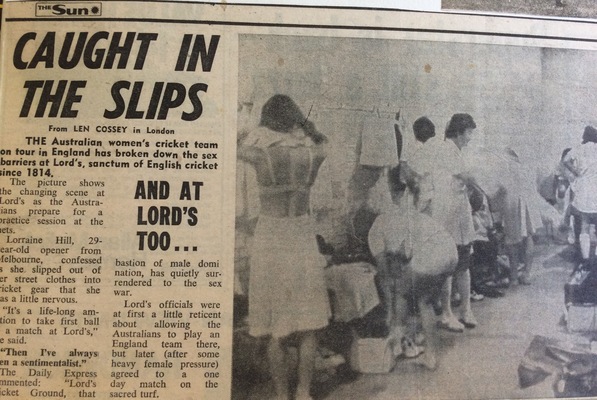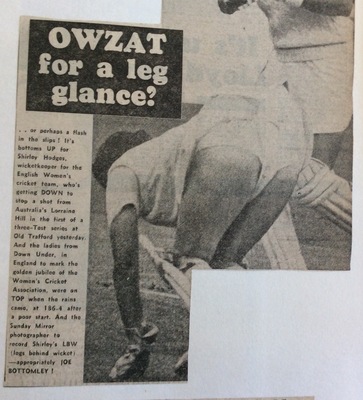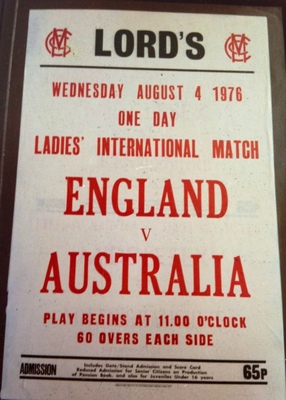By Margaret Maccoll
Stopping play in a bid to gain higher wages wasn’t an option when Patsy Fayne (nee May) of Noosaville played cricket for Australia from 1968 to 1976.
There were no wages for women cricketers and the media did their best to mock them at every toss or catch.
Given the chance, though, she’d do it all again.
Last week Patsy spoke to the Cooroy Probus Club about her eight years playing for the Australian women’s cricket team and showed members just how much the media and society have changed.
Patsy grew up a self-confessed tomboy. Her dad played cricket for Hawthorne East in Melbourne where he was captain and she had a brother.
“He was three years older, stronger. He owned the bat. I never got the bat so I bowled,” she said.
To discourage her tomboy ways her parents sent her to a “very good private girls’ school” where education was the focus, not sport.
But when she started university she sighted the nets, threw a couple of bowls and was on the team.
“There was a small group of women playing in those days,” she said.
“You just played for the love of the game.”
For her friends not involved in cricket “it was a bit of an embarrassment” that she played a boys’ game.
At the time she worked as a physical education teacher. In order to compete her workplace gave her leave without pay and she was lucky, some girls lost their jobs.
Whenever they played the media had a field day with them, taking photos when they bent over.
One player put her workplace name on her underwear which stopped photographers who weren’t allowed to display advertising.
Patsy was once called a ‘fattish’ bowler despite her thin physique. It should have been ‘fastish’, she said.
She said there were lots of dirty tricks like taking them all out to lunch at a brewery before the match and locking the entrance to Lord’s Cricket Ground so they were forced to use the fire escape.
But there were plenty of good times. She travelled with the team and had tea and discussed women and leadership with Margaret Thatcher.
“It made an impression on your life,” she said.
The West Indies certainly made an impression.
On one occasion a handsome West Indian man asked her “does this cricket interfere with your sex life?” She said for the liberal-minded West Indians, sex life meant social life. Just before the nightly 6pm news on TV there was a five-minute slot on sex education for the whole family.
In another incident she was billeted with a family whose pet goat ate the pantyhose she had hung out to dry.
“Difficult to replace, beige stockings in the West Indies,” she said.
Patsy decided to quit cricket after a school reunion. She met her classmates who were married with children and she was spending all her money on cricket.
“I felt I was missing out,” she said.
Patsy marvels at how the women today are treated as serious athletes, paid to play and have support teams.

